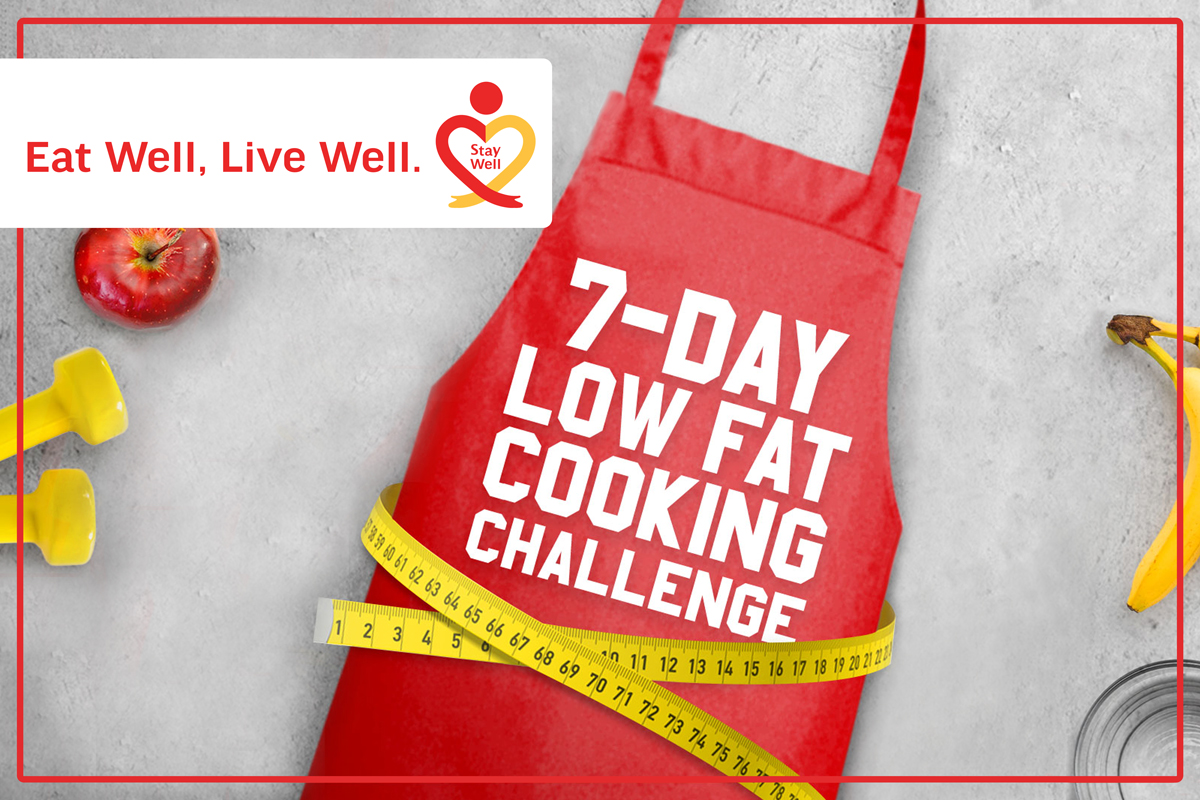
URL Copied
August 28, 2020 9:00 am

The COVID-19 pandemic has brought us to be confined in our homes most of the time. This has greatly affected our lifestyle habits, including our eating patterns and physical activities. Due to the existing stay-at-home protocols, our access to fresh foods have been limited and perhaps, most of us had stocked-up on highly processed foods that are usually high in sodium, sugar and fat.
Despite the challenges being posed by the pandemic situation, eating healthier should still be one of our top priorities to keep our bodies in its optimum state and prevent the development or exacerbation of diseases.
One of the healthy eating habits we may consider this time is to challenge ourselves to try a low fat diet. We prepared special recipes to help hone your Low Fat Cooking Skills.
What is a Low Fat Diet?
A low fat diet limits fat content to 10-15% of the total calories. This restriction implies that both visible fats in food and incorporated fats are limited. It puts emphasis on choosing healthy fats, low fat meat and dairy choices, low fat cooking methods and consumption of fruits, vegetables and whole foods.
What are the benefits of a Low Fat Diet?
Low Fat Diet provides the following benefits:
Prolonged high fat intake may negatively affect the ability of our muscles to respond to insulin and interfere with the ability of our muscles to take up glucose.
Decreasing fat intake and choosing healthier fats will consequently help in decreasing cholesterol and other lipids in the blood. This prevents the build-up of plaque around the arteries, prevent insulin resistance and the gallbladder can efficiently breakdown fats for the body’s use.
Per 1 gram of fat, it contains 9 calories. It is the macronutrient with the highest calories among carbohydrates and protein which both only have 4 calories per gram. So if you reduce your fat intake, it will help in your weight loss journey. However, being on a low fat diet alone will not guarantee weight loss. The total quality of the diet, total calories taken and energy spent must be considered to create an energy deficit that will induce weight loss.
Changing our eating habits and patterns can be extra challenging during this difficult situation. However, small changes, such as switching to low fat choices, are much more sustainable in the long run.
So are you up for the challenge? Check out our easy to cook 7-day low fat meals suggestion to start your healthier eating habits!

Good to Know Nutrition Facts!

Good to Know Nutrition Facts!

Good to Know Nutrition Facts!

Good to Know Nutrition Facts!

Good to Know Nutrition Facts!

Good to Know Nutrition Facts!

Good to Know Nutrition Facts!

Deborah A. Sales, RND is a licensed nutritionist-dietitian handling the Science Communication Section of AJINOMOTO PHILIPPINES CORPORATION’s Public Relations Department. She is a technical expert in food and health and an experienced Culinary Nutrition spokesperson.